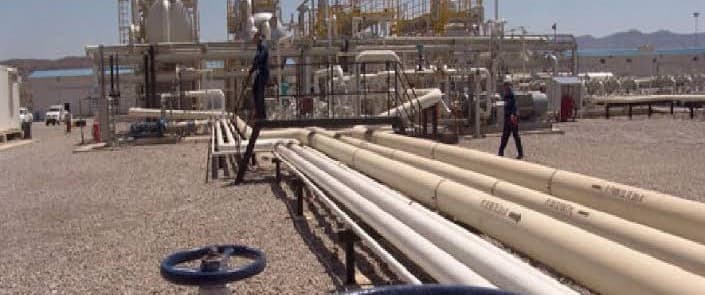Business
U.S. and UK Intensify Efforts to Secure Influence in Syria and Libya

The United States and the United Kingdom are accelerating their strategic initiatives in Syria and Libya, aiming to solidify their influence in regions historically dominated by Russia. With Russia preoccupied with its ongoing conflict in Ukraine, Washington and London are taking decisive actions to prevent Moscow from re-establishing its foothold in these critical Middle Eastern and North African territories.
The U.S. and UK played significant roles in the ousting of Libyan leader Muammar Gaddafi in 2011 and Syrian President Bashar al-Assad in 2024. Over the years, both nations have recognized the importance of implementing robust economic plans in the aftermath of regime changes. These strategies not only mitigate the risks of economic decline and migration but also secure energy rights for the countries involved, while simultaneously countering the influence of geopolitical rivals such as Russia and China.
Sanctions Lifted to Revitalize Syrian Oil Sector
Recent developments indicate a renewed focus on Syria’s energy sector. In early July, the U.S. lifted sanctions on Syria’s Ministry of Oil and Mineral Resources, the General Authority for Maritime Transport, and the country’s primary refineries. This move followed the removal of a broader range of sanctions that had previously restricted the importation of Syrian oil and oil products into the U.S.
These actions are designed to unlock the potential of Syria’s oil and gas sector, aiming to restore its economy to a state described by the sanctions removal order as “stable, unified and at peace with itself and its neighbors.” Before the civil war began in March 2011, Syria was producing approximately 400,000 barrels per day (bpd) of crude oil from reserves estimated at 2.5 billion barrels. European nations had significantly relied on Syrian oil, importing over US$3 billion annually.
Major companies from various countries, including the UK’s Shell and Petrofac, France’s then-Total, and Russia’s Tatneft, were active participants in Syria’s energy sector prior to the conflict. Since Russia’s military intervention in 2015, Moscow has expanded its influence over Syria’s oil and gas resources, establishing vital military bases that have solidified its presence in the region.
Following the lifting of sanctions, U.S. firms, including Baker Hughes and Hunt Energy, are preparing to play a leading role in revitalizing Syria’s energy sector, specifically targeting oil-producing areas currently under the control of the new Syrian government. According to a senior source in the European Union’s security complex, local Middle Eastern firms will collaborate with these U.S. companies to focus on power generation, with European firms expected to follow.
Libya’s Energy Landscape Shifts Amid Renewed Interest
In Libya, recent developments have similarly signaled a shift in the energy landscape. Historically, before the 2011 conflict, Libya was capable of producing around 1.65 million bpd of high-quality light sweet crude oil. The National Oil Corporation (NOC) had ambitious plans to enhance production through advanced recovery techniques.
British firms, including BP and Shell, have recently taken the lead in Libya’s energy sector. On July 8, BP signed a memorandum of understanding (MoU) with the NOC to explore development options for the Sarir and Messla fields, as well as potential unconventional oil and gas projects. BP’s executive vice president, William Lin, emphasized the company’s commitment to deepening partnerships with the NOC.
In a related effort, U.S. President Donald Trump’s senior adviser for Africa, Massad Boulos, visited Libya to oversee a cooperation agreement aimed at enhancing gas output through the development of offshore fields. The initiative is expected to yield a combined output of 750 million cubic feet per day starting in 2026.
The U.S.’s ambitions in Libya were further underscored by the recent agreement between ExxonMobil and the NOC to identify hydrocarbon resources in four offshore blocks. These developments present formidable challenges for Russia and China as both countries attempt to extend their influence in the region.
The ongoing efforts of the U.S. and UK in Syria and Libya reflect a broader strategy to secure energy resources while maintaining geopolitical stability in the face of Russian and Chinese expansion. With both nations investing heavily in the revitalization of these key energy sectors, the dynamics of power in the Middle East and North Africa are poised for significant transformation.
-

 Entertainment3 months ago
Entertainment3 months agoAnn Ming Reflects on ITV’s ‘I Fought the Law’ Drama
-

 Entertainment4 months ago
Entertainment4 months agoKate Garraway Sells £2 Million Home Amid Financial Struggles
-

 Health3 months ago
Health3 months agoKatie Price Faces New Health Concerns After Cancer Symptoms Resurface
-

 Entertainment3 months ago
Entertainment3 months agoCoronation Street’s Carl Webster Faces Trouble with New Affairs
-

 Entertainment3 months ago
Entertainment3 months agoWhere is Tinder Swindler Simon Leviev? Latest Updates Revealed
-

 World2 weeks ago
World2 weeks agoBailey Announces Heartbreaking Split from Rebecca After Reunion
-

 Entertainment2 weeks ago
Entertainment2 weeks agoCoronation Street Fans React as Todd Faces Heartbreaking Choice
-

 Entertainment4 months ago
Entertainment4 months agoMarkiplier Addresses AI Controversy During Livestream Response
-

 Science1 month ago
Science1 month agoBrian Cox Addresses Claims of Alien Probe in 3I/ATLAS Discovery
-

 Health5 months ago
Health5 months agoCarol Vorderman Reflects on Health Scare and Family Support
-

 Entertainment4 months ago
Entertainment4 months agoKim Cattrall Posts Cryptic Message After HBO’s Sequel Cancellation
-

 Entertainment3 months ago
Entertainment3 months agoOlivia Attwood Opens Up About Fallout with Former Best Friend



















